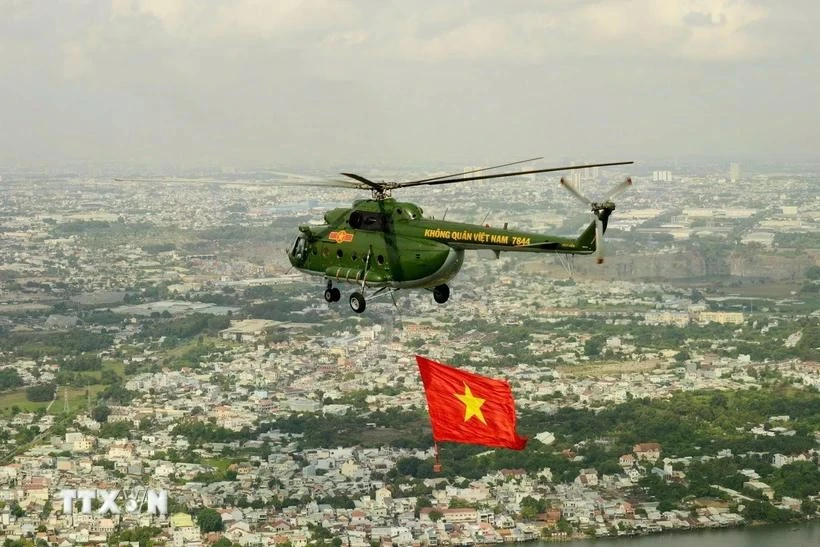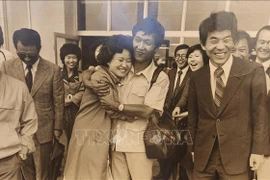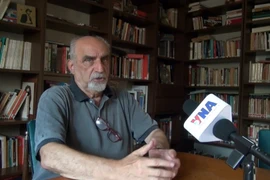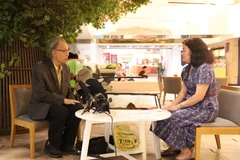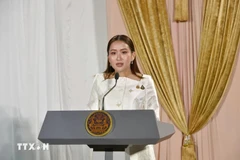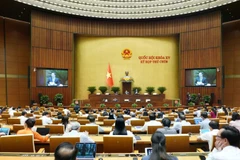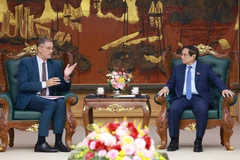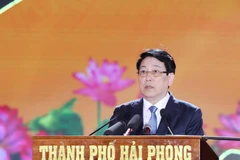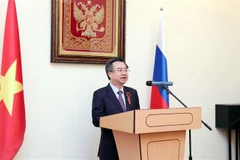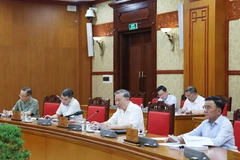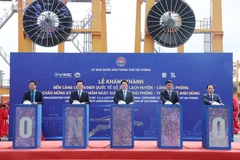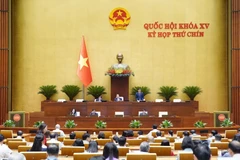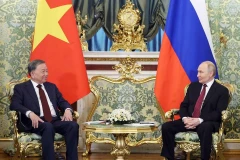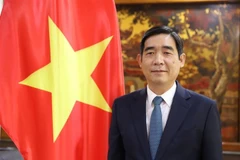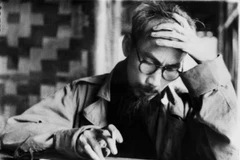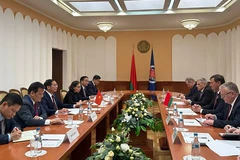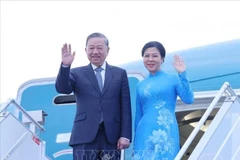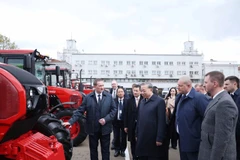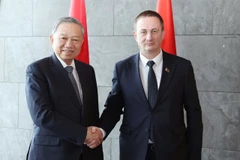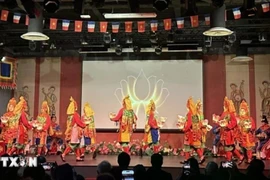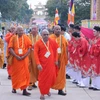Sydney (VNA) – The year 2025 marks the 50th anniversary of Vietnam’s reunification (April 30, 1975 – 2025), a milestone of profound historical significance, symbolising a long journey of national resilience and development.
In a recent interview with the Vietnam News Agency (VNA)'s resident correspondents in Sydney, Professor Chu Hoang Long, Director of the Vietnam Policy Research Centre at the Australian National University, said from a nation ravaged by war and once among the poorest in the world, Vietnam has risen robustly to assert itself as a dynamic and responsible nation on the international arena.
The country has made impressive strides not only in its global stature, across economic, social, cultural, and diplomatic domains, but also in individual development, where citizens are increasingly empowered to enhance their quality of life, intellectual capacity, well-being, and professional skills.
According to Professor Long, who also serves as Vice President of the Association of Vietnamese Intellectuals and Experts in Australia, two key factors underpin Vietnam’s rapid development: political stability and a flexible foreign policy. Both of these have helped maintain a peaceful environment for growth while elevating the country’s international image and human capital, the resilience, intelligence, work ethic, and solidarity of the Vietnamese people, which forms the bedrock for sustainable national development.
He emphasised that national solidarity was the core force behind the historic victory of April 30, 1975, and remains the key to Vietnam’s progress over the past five decades. Reunification stands as a vivid testament to the internal cohesion of the Vietnamese people, which overcame attempts at division. This same solidarity played a crucial role in healing the wounds of war and galvanising the nation to rebuild and modernise. It has also been a driving force behind the country’s adaptability and shared purpose through various phases of development, culminating in today’s socio-economic achievements.
Over the past 50 years, the spirit of national unity has not faded, Professor Long noted, but has instead become more deeply embedded and agile in Vietnam’s development trajectory. This enduring value has enabled the country to recover from war, navigate natural disasters and pandemics, and secure a resilient foothold in an increasingly complex and competitive global environment.
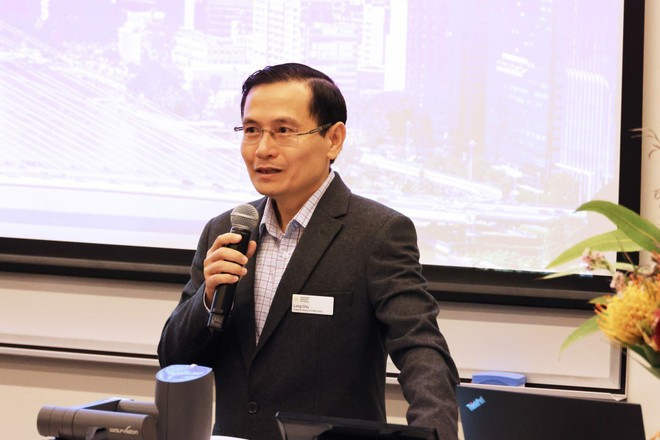
He believed that the core elements drawn from Vietnam’s struggle for national liberation and reunification can be effectively applied in the context of the Fourth Industrial Revolution and the current digital economy.
Fifty years ago, aspiration for self-determination meant national reunification. Today, it signifies economic and technological sovereignty, propelling Vietnam toward becoming a high-income developed nation. This national aspiration fuels a culture of innovation, bold thinking, and decisive action, laying the foundation for a comprehensive digital ecosystem, comprising digital government, digital enterprises, and digital citizens, where everyone can contribute to and benefit from development.
In an era where physical borders are blurring and global culture is pervasive, preserving and promoting Vietnam’s cultural heritage is not only about safeguarding origins but also gaining a competitive advantage. This distinct identity helps position Vietnam clearly on the global map as a nation that integrates without losing its essence. Culture also serves as a source of soft power, shaping digital trust, digital ethics, and sustainable values in the new era.
The third element lies in strategic vision and leadership agility, especially in knowledge development and application. In wartime, victory stemmed not only from courage but also from strategic thinking, adaptability, and the ability to seize opportunities. These attributes are even more critical in modern governance, where data, technology, and analytical thinking are indispensable. Vietnam must continue nurturing a spirit of innovation and long-term vision to tackle emerging challenges and the risk of lagging behind amid rapid technological change.
The professor affirmed that the historic April 30 victory remains a landmark in Vietnam’s national construction and defence, offering timeless lessons for national development, especially in today’s deeply integrated global economy.
The most profound lesson, he said, is the power of unity. In this era of globalisation, that spirit must be further harnessed to mobilise the collective strength of the people, realise the national aspiration for prosperity, uphold sovereignty, assert cultural identity, and elevate Vietnam’s international stature.
Secondly, it is essential to awaken and leverage the nation’s internal strengths. The April 30 victory demonstrated that Vietnam’s intrinsic resources, its people, culture, patriotism, and intellect, are the solid foundation for overcoming any adversity. Investing in human capital, education, creativity, and innovation is the path to unlocking potential and achieving breakthroughs in sustainable development.
Lastly, strategic thinking, flexible action, and timely seizing of opportunities remain vital to achieving long-term national goals. In war, Vietnam pursued a consistent grand strategy while applying adaptive and creative tactics. That same wisdom continues to guide the country in policymaking, diplomacy, economic growth, scientific and technological advancement, and navigating global shifts. Upholding a long-term vision while swiftly adapting to changing realities will be key to Vietnam’s continued rise in the new era./.
